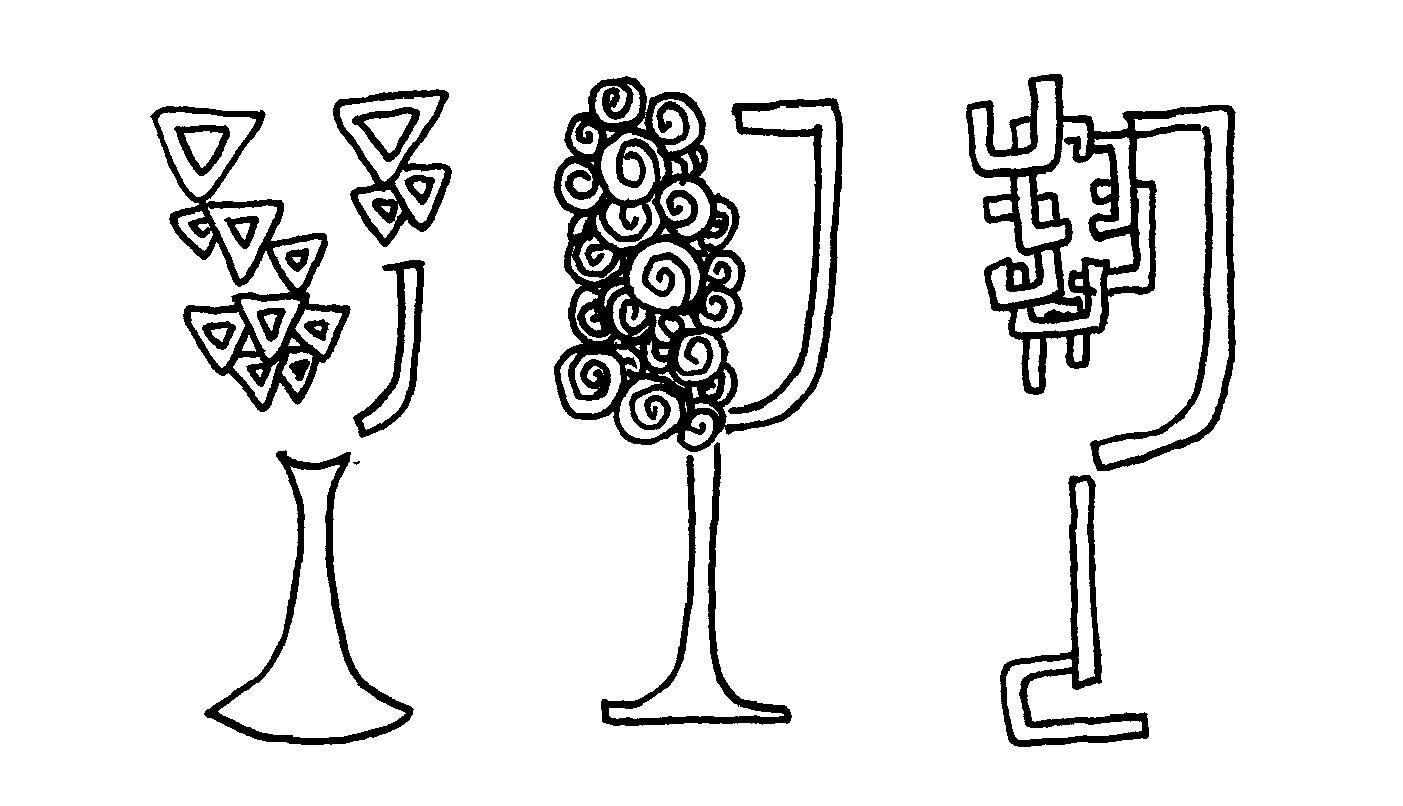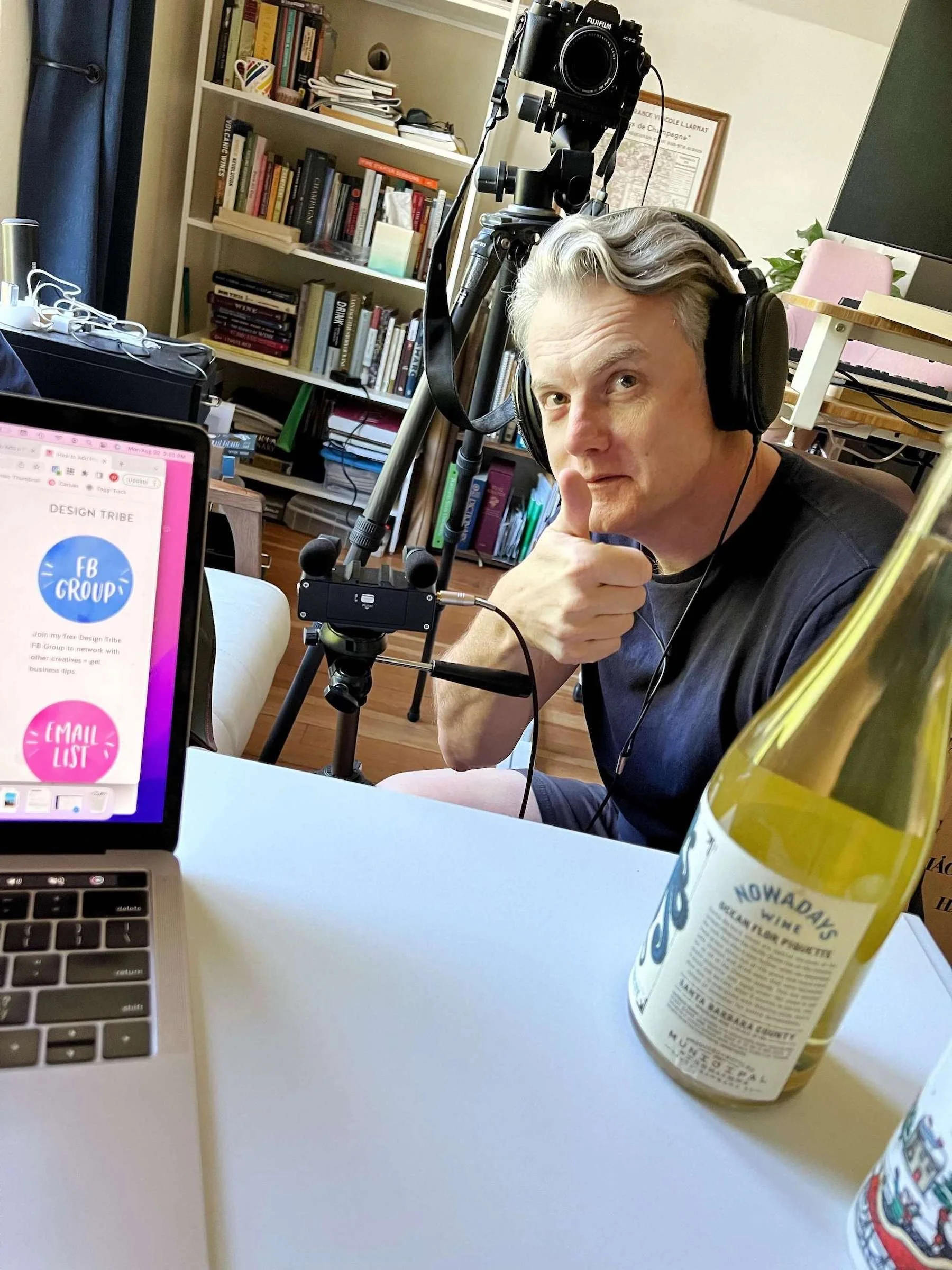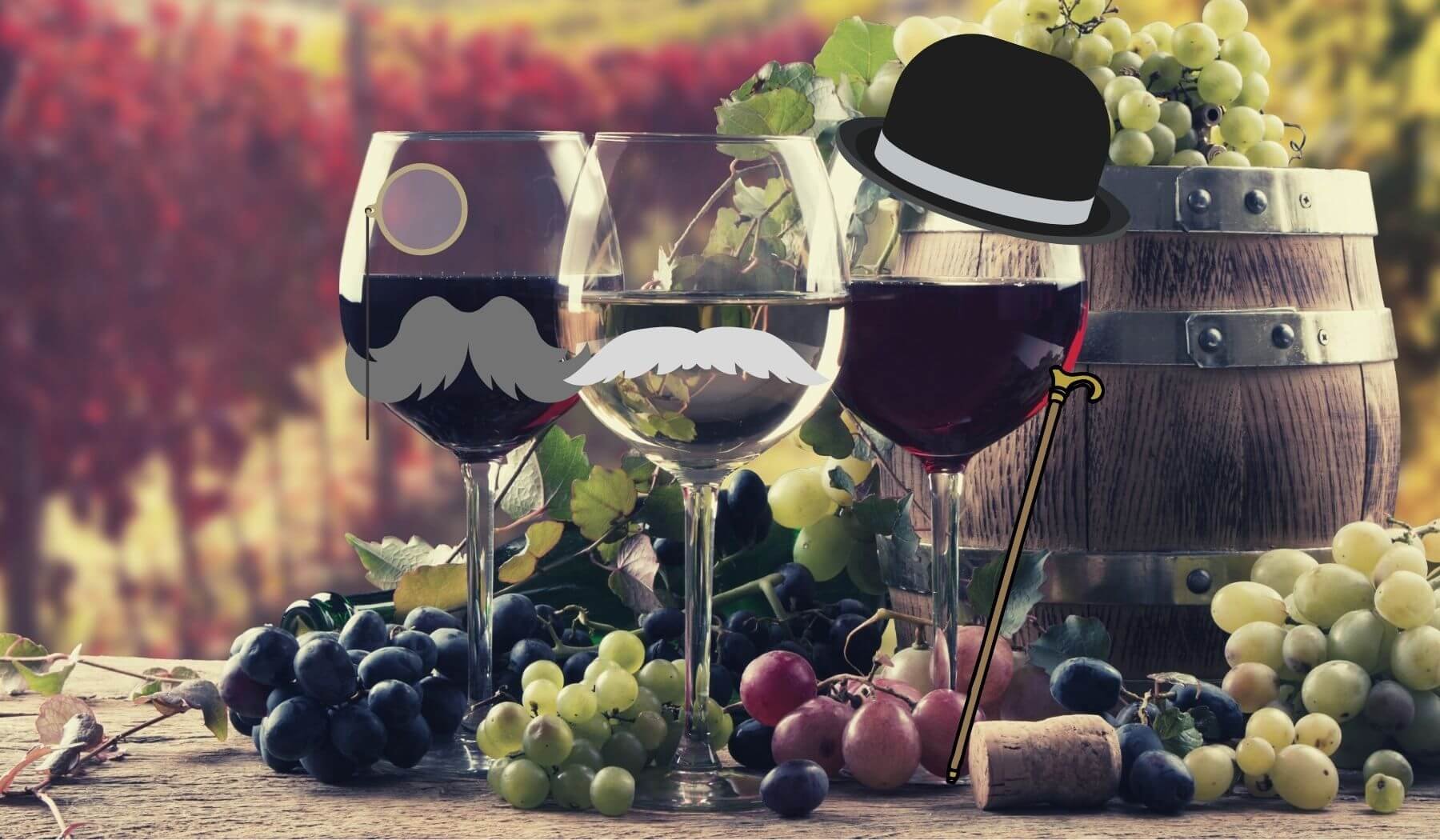Organic wine is not everything
Martin and I are deep in the middle of recording The Ultimate Natural Wine Course—(imagine this said in a deep, booming voice…) Well, we just finished module two, Natural Wine in the Vineyard (ie, Are Organics and Biodynamics Everything They’re Cracked Up to Be?).
Here’s Martin in action ⬇️
The making of The Ultimate Natural Wine Course
(Side note: If you’re a member of Sunday School Wine Society, the Natural Wine in the Vineyard videos are all up and ready for your viewing pleasure! What’s the deal with our membership? Great question. Click here for membership deets.)
In the meantime, I’m going to let you in on some shocking truths 🤯 about organic wine.
The question you’ve all been wondering…
Is organic wine* better for you? Is it the best wine to buy?
Basically, is organic wine worth writing home about? Short answer: eh, maybe, but not necessarily. “But whyyyy?” you ask.
Read on to find out the truth about organic wine and what (in our humble opinion) you should be writing home about (figuratively speaking) instead.
What is organic wine?
A wine label can have one of two ways to display its organic wine credentials: ‘Organic wine’ or ‘Made with organic grapes’. There is an important difference between them:
Organic wine - the wine must be made from organic grapes, cannot have any added sulfur (like any wine it will contain naturally occurring sulfites), plus any other ingredients must also be organic.
Made with organic grapes - the grapes used in production must be 100% organic. It does not regulate the organic-ness of any other ingredients. It also allows up to 100 parts per million (ppm) of added sulfites. That’s much lower than the legally allowed sulfite levels allowed in wine (350 ppm) but quite a bit higher than what most natural wine producers feel comfortable adding (say, up to 35 ppm).
Great! So just pick up a wine with one of these two seals of approval from your local Whole Foods, and done-zo! You aren’t putting toxins in your body, you’re supporting a winery/vineyard who isn’t putting toxins into the earth, and you’re drinking delicious and well-made wine—because organic stuff always tastes better, right?
Well, not necessarily. Organic wine is not always as groovy as it seems.
Organic wine can still have lots of chemicals and additives
The organic label is primarily referring to how grapes are grown in the vineyard and has very little to do with what happens to a wine after that. Once those organic grapes enter the winery and get made into wine there are dozens of additives that are legally allowed to be added to the wine. The organic certification, sadly, does not strictly monitor this part of the process!
So, organic wine doesn’t necessarily mean you get any kind of natural wine. More delicious and thoughtfully made wine? Who’s to say? You have to make your best guess or ask around—there is no real guarantee.
Organically-labeled wines are often produced by the big guys
An organic certification is an extensive, bureaucratic and expensive process. Some smaller wineries prefer to forgo the certification as a waste of effort and money. They may still farm organically but you won’t know that without asking since they won’t be able to legally put ‘organic’ on the label.
On the other hand, the big boys are also getting into the organic game. For some it may be a genuine commitment to organic principles, but there’s also no doubt that it’s a great marketing tactic – why else would California’s Fetzer Vineyards change its name to Bonterra Organic Estates??
Big doesn’t necessarily mean bad, but then again do you want something made to a recipe? We’re not being snobby here—we like a bargain wine as much as anyone!—but we’d like to bet that you’re more likely to find a wine with few chemicals and additives, that will be delicious and good for you and the earth, from a smaller producer who cares about their wine and not from the multi-national conglomerate that can buy a share of the market.
So where do I find these wines with few additives that are good for my health and the environment?
Whole Foods? Probably not. (Sorry, not sorry, Amazon.) Okay, some Whole Foods might have a little section with some locally-made wine from small producers, so there’s that. But we’re here to offer up a much better solution: find a local, independent wine shop!
Do what you do at your local Whole Foods (we can’t control your whole life), then head up the hill to that little out-of-the-way bottle shop and shop their curated selection.
Ask them if they know of any wines in the shop that are small-production, low-intervention organic, or are sustainably-made and thoughtfully-farmed. Probably most wines in the shop will fit that criteria and, if anything, they will just steer you away from the few budget wines that might be made in a more industrialized fashion.
There are hundreds—neigh, thousands(!) of amazing, independent bottle shops around the country. I mean look at some these cute humans at a few we love. ⬇️
From left: Eric Moorer (Domestique in D.C.), Jeff Weissler (Pairings in Portland, OR), Melissa Zeman (BottlesUp! in Chicago)
So there you go, my friends. Better wines for your health, the environment, your enjoyment of deliciousness, and that support the industry we all love! Happy shopping. :)
P.S. To take part in the making of The Ultimate Natural Wine Course, watch our videos in real time, and give us your thoughts and feedback, and get lots more members-only bonuses, join our super-cool membership, Sunday School Wine Society!
Do you have a fave bottle shop local to you? Tell us! Give them shout out in the comments!
*For the record, I’m referring specifically to wines that have the official certified organic label. There are lots of wines that are made organically that don’t have the official certification. You will find many of these at your local, independent bottle shop.









It’s New Year’s Resolutions time! In other words, let’s eat more healthily and drink more thoughtfully and maybe you want to find some of that wine with low, or better yet, no added sugar! Well what if I told you that the idea of low/no sugar wines is a total myth? Ok, so what’s the reaaaaaaal story about sugar in wine? (We think you’ll be very pleasantly surprised 😉